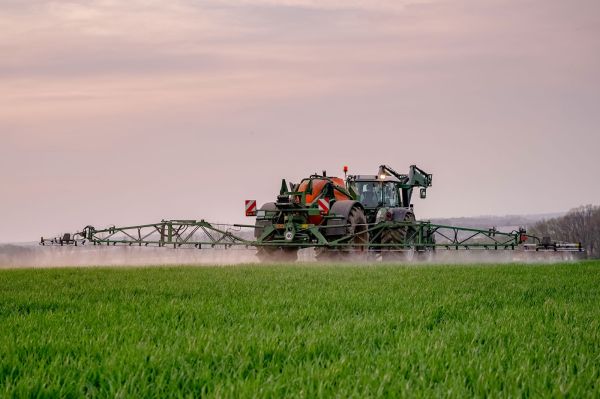
Matt O'Keeffe
Editor
Glyphosate reprieve

There were concerns in recent times that glyphosate could be removed from the market entirely, or at least be subjected to such restrictions as to make it impractical for general use on farms.
While the EFSA vote of confidence is welcome, it is not entirely clear that the conclusions reached by the EU’s food-safety guardian will see the end to doubts around glyphosate’s continuing availability as an agricultural herbicide.
Farmers cannot be fully reassured that what has been a vital component of grassland and tillage-crop management will continue to be available for use. The EFSA's recent verdict comes after last year’s findings from the European Chemical Agency that glyphosate poses no threat to human health. However, the EFSA assessment also concluded that some data gaps are reported in its conclusions – these are issues that could not be finalised, or are outstanding issues – for the European Commission and Member States to consider in the next stage of the renewal of approval process.
Importance
Glyphosate products have been used by Irish farmers since the product was brought to market by (the late) Monsanto in the 1970s. Its use is even more important today with the increasing popularity of min-till practices to prepare ground for grain and other crops. On grassland, the renewal of grass swards and the introduction of multispecies swards depends greatly on efficient eradication of existing grass and weeds. Because the EU continues to ban genetically modified (GM) crops, there is no potential for Irish tillage farmers to grow glyphosate-resistant grain crops. Most of the maize corn, soya and cotton crops across the world allow for glyphosate to be sprayed, removing weeds but not affecting the roundup-resistant plants. There is an element of hypocrisy in the EU’s ban on the production of GM crops given the fact that thousands of tonnes of GM grains and cotton products are imported into the EU annually. But it doesn’t end there. Banning peat production in Ireland while allowing it to be imported from other peatlands across the planet is inherently hypocritical.
"We value low cost over high values. That’s hypocrisy too"
Campaigning to reduce Irish milk and beef production which have relatively low carbon footprints resulting in more milk and beef being produced in other countries with far higher carbon emissions and lower environmental standards, is also hypocritical. But let’s not blame the regulators or politicians entirely for the hypocrisy that is rampant in the world. It spreads beyond those circles, too. Ultimately most people ‘value value above values’. Value is too often equated with price, which is not a true definition of value. The adage still holds: some people know the cost of everything and the value of nothing. We expect the highest food safety and quality standards, and that’s the way it should be. However, we don’t want to pay more for the inherent additional cost of producing food to those exacting standards. We rarely wonder how a chicken can be so cheap or how a one kilogramme bag of carrots on a supermarket shelf costs one third of the price of a 180g bar of chocolate. Why? Because we value low cost over high values. That’s hypocrisy too.




